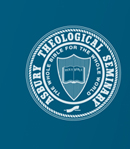Abstract
In this article we interface mission, theology and psychology in an exploration of what hinders and what enables conciliatory existence. Whereas common approaches to reconciliation focus on redressing past wrongs, we propose identity formation that would prevent such wrongs. We consider how people integrate elements of their social context into a social identity that influences how they perceive "the other."
Understanding this to be divine action that transforms psychological processes, we draw from all three disciplines to understand the dynamics of how we come to see the other.
Biblical theology provides penetrating narratives into the nature of fallen humanity and its proclivity toward self-aggrandizement and strife. Psychosocial analysis recognizes that the processes of socialization so necessary to promote belonging and identity formation, are also quite capable of turning others into objects of scorn and hatred. Yet, both theology and psychology, posit that despite however distorted human nature may be, it has the potential of being re-created. We locate the work of reconciliation as beginning with the being and action of God on behalf of humanity and demonstrated powerfully in the transformation of the apostles in the book of Acts.
DOI
10.7252/Journal.01.2010S.03
Recommended Citation
Kiesling, Chris and Pachuau, Lalsangkima
(2010)
"Identity Formation for Conciliatory Existence: How We Perceive the Other,"
The Asbury Journal:
Vol. 65:
No.
1, p. 31-46.
Available at:
https://place.asburyseminary.edu/asburyjournal/vol65/iss1/4

